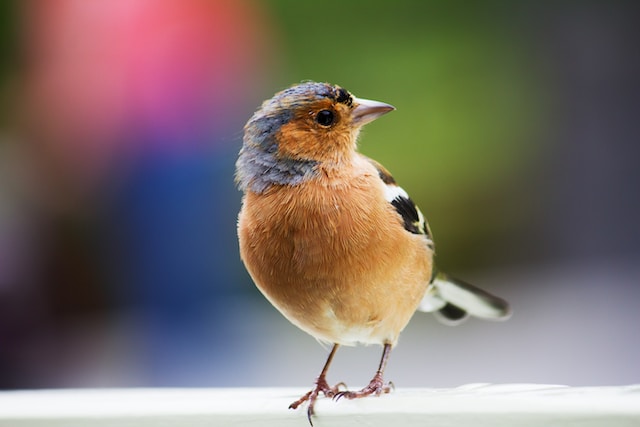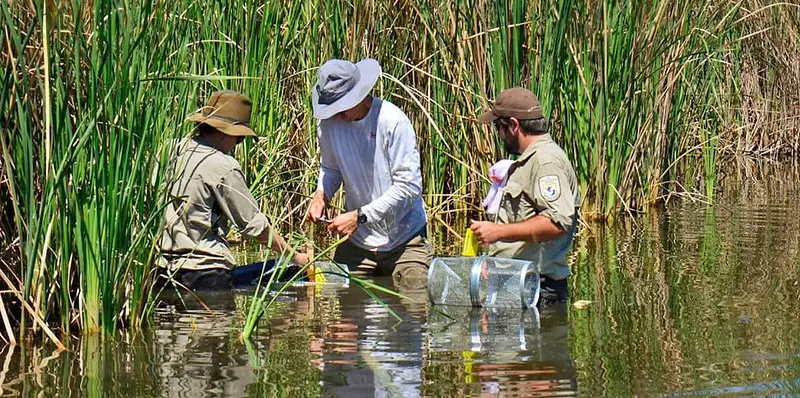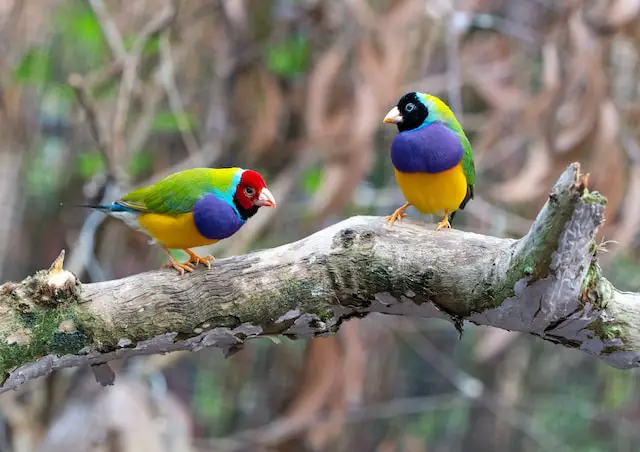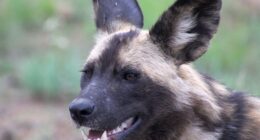Ornithologists and herpetologists are biologists who study different aspects of the animal kingdom, they have distinctive areas of expertise. Ornithology is the branch of biology that deals with birds, their behavior, ecology, evolution, and physiology. In contrast, Herpetology is focused on reptiles and amphibians.
What is an ornithologist?
(Photo by Vittorio Zamboni on Unsplash )

An ornithologist is a scientist who specializes in the study of birds. They observe, research, and analyze various aspects of bird behavior, physiology, ecology, and evolution. Ornithologists work to understand how birds interact with their environment and other species.
They use a variety of tools such as binoculars, telescopes, cameras, and recorders to collect data on bird populations. They may also conduct experiments in labs or out in the field to gain further insight into avian biology.
Ornithologists play an essential role in conservation efforts by providing valuable information about endangered species and their habitats. Their research helps identify threats that impact bird populations allowing for effective management strategies to be implemented.
To become an ornithologist requires extensive education and training which often includes obtaining a degree in biology or related fields like wildlife science or ecology. It’s important for aspiring ornithologists to develop strong observational skills along with critical thinking abilities to excel in this field.
What is a herpetologist?
(Photo By USFWS Pacific Southwest Region on Flickr )

A herpetologist is a scientist who studies reptiles and amphibians. They are experts in these particular animals, including their behavior, morphology, ecology, and evolution. This field of study is called Herpetology.
A herpetologist can specialize in either reptiles or amphibians, although many choose to study both groups since they share several characteristics such as being cold-blooded creatures that lay eggs. These scientists also analyze how environmental factors influence the life cycle of an animal in its natural habitat.
One of the most thrilling aspects of studying herpetology is the opportunity to discover new species or subspecies. Since there are still so many unexplored areas on earth’s surface that could be home to unknown species, herpetologists have a crucial role in finding them.
Herpetologists work at universities or research institutions where they conduct experiments and contribute to scientific knowledge continually. Some may even work for conservation organizations that seek to preserve habitats for endangered species by implementing measures like breeding programs.
If you’re fascinated with snakes, lizards or frogs and dream about understanding everything related to them from their anatomy down into their ecological interaction; then maybe becoming a herpetologist should be one option on your list!
Ornithologist Vs. Herpetologist – Key differences
Ornithologists and herpetologists are two different types of scientists that specialize in the study of birds and reptiles/amphibians respectively. Even though both fields deal with living organisms, there are some significant differences between them.
One of the most apparent distinctions between ornithology and herpetology is their subject matter. Ornithologists investigate birds’ behavior, physiology, ecology, taxonomy, migration patterns etc., while herpetologists focus on amphibians’ and reptiles’ anatomy, reproduction process, habitat preferences among other things.
Another fundamental difference is their research methods. Since birds can fly long distances to find food or nesting grounds in different regions around the world, ornithologists often rely on tracking devices like GPS tags to monitor bird movement. In contrast, herpetologists mostly conduct field surveys using visual observations or capture techniques like traps and nets to track down elusive creatures like snakes or frogs.
Lastly but not least important is their contribution to science. Ornithology has a more extensive impact on society since humans have been fascinated by birds since ancient times due to their beautiful plumage and melodious songs. As for Herpetology’s contribution to science it centers more on conservation efforts as many species in this group face endangerment due to human activity such as deforestation.
In conclusion: Although both fields share similarities regarding animal biology studies – they differ massively in terms of scope interest-ornithology being more broad-based; whereas Herpetology focuses mainly on conservation efforts within specific geographic areas where these animals reside without interference from human activities.
What are the specialties of Herpetology?
Herpetology is the branch of zoology that deals specifically with reptiles and amphibians. It is a highly specialized field, and herpetologists are experts in studying these fascinating creatures. The study of herpetology requires extensive knowledge on the anatomy, physiology, behavior, ecology, conservation and taxonomy of reptiles and amphibians.
One major specialty within herpetology is venomous snake research. Herpetologists who specialize in this area study the chemical composition and effects of venom on different organisms to develop new antivenom treatments. Another important aspect of herpetology is understanding how reptiles and amphibians interact with their environment such as their role in food webs or ecosystems.
Reptile developmental biology also falls under herpetological studies which includes embryonic development from fertilization to hatching out eggs including genes involved in sex determination.
The genetics behind color morphs or variations can also be understood by studying them closely.
There’s a big emphasis on conservation efforts for endangered species among many other issues that impact populations including habitat destruction, pollution etc.
Herpetologists play an essential part in preserving threatened species through various methods aimed at reintroducing animals back into the wild after captive breeding programs or identifying factors contributing to population declines.
Who is a famous herpetologist?
One of the most famous herpetologists is Dr. Laurie J. Vitt, an American biologist who has extensively studied reptiles and amphibians for over four decades. He is a renowned author with multiple published books on the subject of herpetology.
Dr. Vitt’s research has taken him all around the world, from studying geckos in Madagascar to salamanders in Mexico. He also served as president of the Society for the Study of Amphibians and Reptiles.
Apart from his scientific contributions, Dr. Vitt has also helped popularize herpetology through his engaging writing style and outspoken advocacy for conservation efforts.
Another notable figure in the field is Dr. Harry W.
Greene, who authored one of the most widely used textbooks on herpetology called “Snakes: The Evolutionary Mystery”. His work focuses mainly on snake behavior and ecology.
Both Doctors, Vitt and Greene have made significant contributions to our understanding of reptiles and amphibians while inspiring future generations to pursue careers in this fascinating field.
Who is a famous ornithologist?
One of the most famous ornithologists in history is John James Audubon. Born in Haiti in 1785, Audubon was an American naturalist and artist who is best known for his seminal work “The Birds of America”. This book contains over 400 hand-drawn watercolor illustrations depicting various bird species found across North America.
Audubon’s passion for birds began at a young age when he would spend hours observing and drawing them. His love for these creatures led him on numerous expeditions throughout the United States to study them in their natural habitats.
In addition to his artistic talents, Audubon was also a skilled writer and scientific observer. He meticulously documented the behavior and physical characteristics of each bird he encountered, providing valuable insights into their ecology and biology.
Today, Audubon’s legacy lives on through organizations such as the National Audubon Society, which works to protect birds and their habitats across North America. Additionally, many universities offer ornithology programs that allow students to follow in his footsteps by studying avian biology and conservation efforts.
John James Audubon remains one of the most influential figures in the field of ornithology thanks to his groundbreaking research and breathtaking artwork that continues to inspire nature enthusiasts around the world today.
Featured Image By – David Clode on Unsplash









